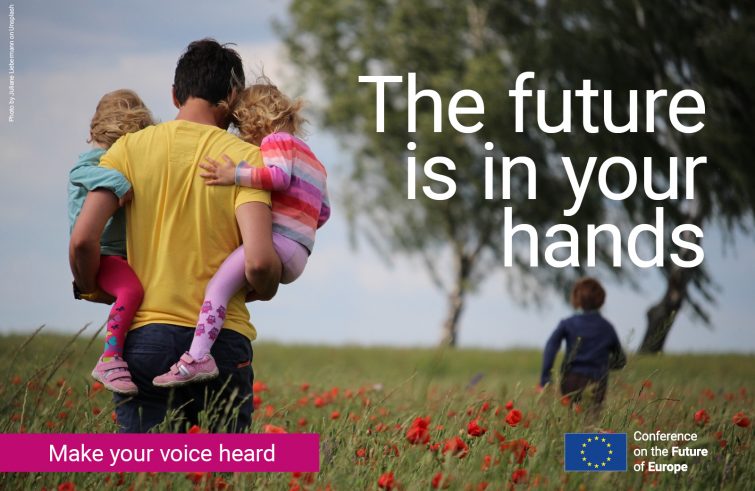
The European Union is once again trying to move into higher gear. The tragedy of the pandemic remains at an alarming level. The inception of a “new era” is clear to all and it requires radical rethinking – in Europe and throughout the world – in various areas: healthcare, the economy, welfare, ecology, politics and institutions. To those who were still doubtful, COVID-19 demonstrated that “no one is saved alone” and that nationalism (notably, “vaccination nationalism”) is obsolete.
A reminder to that effect came from Ursula von der Leyen in her State of the Union address of May 6:
the President of the Commission suggested ‘I care” as a suitable motto for the EU.
The words “I care” of Don Milani, Italian priest and teacher, are another way to express the principle of solidarity that underpins 27-Member State Europe. It should inspire every human action (being neighbour according to the Gospel), every community and every political decision. At this historic juncture, the EU was marked by delays and blatant limitations, which have been repeatedly denounced. This is chiefly due to the 27 Member States’ disproportionate decision-making powers, resulting in nationalistic obstacles (each one for its own sake) to EU decision-making, which had been shaped around the principle of solidarity by the founders of Europe. In the past 12 months, when it became clear that no one would be spared by the pandemic, a new conviction gradually emerged, namely to pursue shared responses to our common health challenge, which in turn was causing a severe economic, occupational and social crisis. In fact, since May 2020, thanks to close, fruitful cooperation between the EU institutions and its 27 Member States, concerted action has gradually taken shape on a number of crucial issues:
measures to contain the contagion; research, production and distribution of vaccines; supporting national economies; opening the internal market to ensure access to medicines, medical equipment and consumer goods throughout the EU; and allocation of appropriate funds for emergency welfare (unemployment benefits and redundancy funds).
Not everything has been successful – nor is it performing to standard – but the idea of a finally effective Europe – making choices that respond to the urgent needs of citizens, local communities and businesses – seems to have gained credence.
Next Generation EU, a €750 billion recovery instrument designed to to help repair the immediate damage brought about by the coronavirus pandemic, is the most prominent feature of the “new course” of EU integration.
Thus, Europe Day 2021 – traditionally celebrated on May 9, commemorating the date of the Schuman Declaration in 1950, a milestone in European integration – now acquires a different meaning. Three events will be held over the weekend to mark this date.
The Porto Social Summit of May 7 is an event hosted by the Portuguese presidency of the Council of the European Union. Its overall aim is to set the European social policy agenda for the next decade, ensuring that the present and future challenges are met “leaving no-one behind.” At the high-level conference, member states, European institutions, social partners and civil society will come together to reinforce their commitment to the implementation of the European Pillar of Social Rights.
The results of the conference are expected to inform the work of the informal meeting of heads of State or Government on 8 May, also held in the Portuguese city. EU leaders will meet “to discuss social issues, the COVID-19 pandemic and international relations”, reads the official website of the European Council. Debates will focus on the implementation of the European Pillar of Social Rights. The Action Plan presented by the Commission in March 2021 provides guidance on the implementation of said Pillar in the areas of employment, skills and social protection, work-life balance, social protection, inclusion of people with disabilities, support for the homeless, intergenerational relations, etc…
Not least,
on May 9, the Conference on the Future of Europe will finally be inaugurated.
Focusing on citizens, the Conference aims to revamp EU institutions and relaunch the integration process. A digital platform was launched in April, in the 24 official languages of the Union, offering the possibility for everyone to register and take part in the Conference with their proposals. The Conference – held in a number of online panels, including discussions with representatives of the EU institutions, member countries and citizens – is expected to deliver conclusions and guidelines on the future of the Union within a year.
These are formal steps, perhaps still overly “institutional.” Nevertheless, they are a sign that Europe, building on its experience and taking stock of recent events, is seeking viable ways of meeting the real needs of its citizens who are demanding health, work, education, social security and support for the vulnerable. In this respect, the EU can prove its worth in terms of governance, regaining credibility in the eyes of Europeans.









